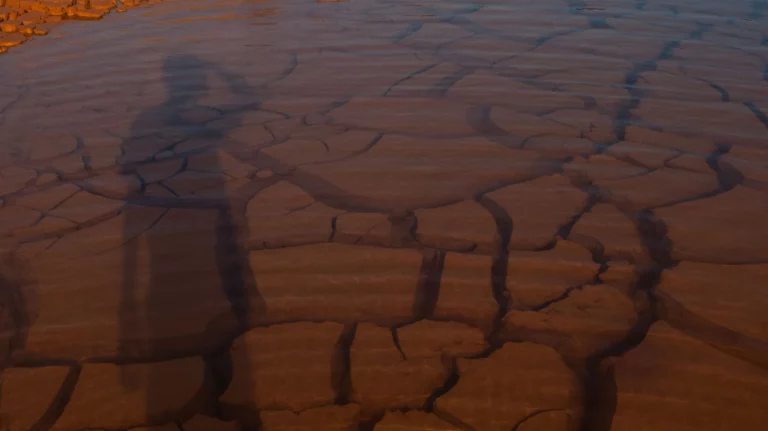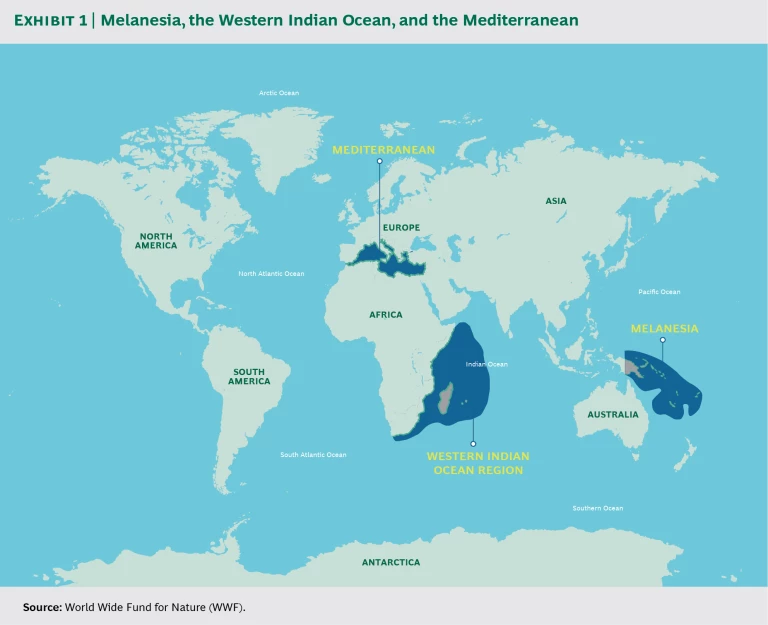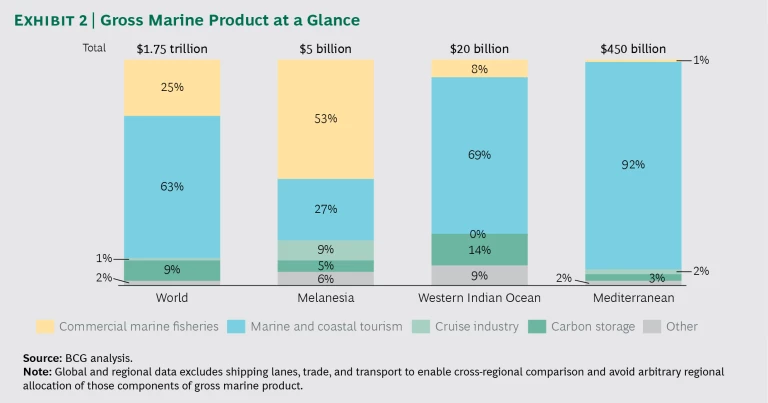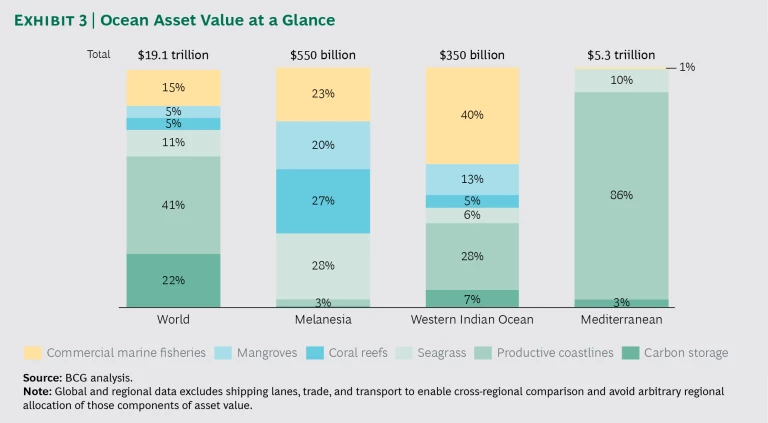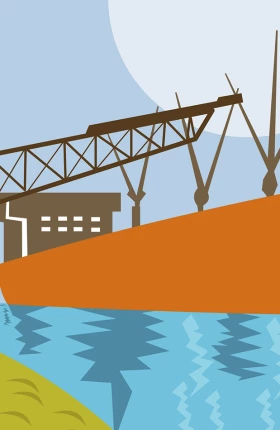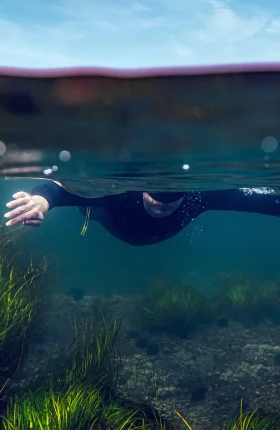The ocean is an economic powerhouse. The range of goods and services that flow from the world’s coastal and marine environments can be valued conservatively at $2.5 trillion each year, making the ocean the world’s seventh largest economy. Its global assets can be valued at more than $24 trillion. It supports the livelihoods of hundreds of millions of people, creates jobs, and serves as a foundation for entire industries, like fishing, tourism, and shipping.
Our seas are threatened by climate change, acidification, and the increasing damage associated with storms and high tides; overexploitation of resources like fish stocks; the erosion of critical habitats, including coral reefs, seagrass beds, and mangroves; and pollution. To put it in business terms, we are gradually running down the capital base. At the same time, we know what’s needed to protect and revive the ocean. And we know the economically sound path to take. Perhaps because so much of the threat exists below the surface of the sea, out of sight for most of us, the protection of oceans has received limited attention to date.
In 2015, The Boston Consulting Group, in association with the World Wide Fund for Nature (WWF) and the Global Change Institute at the University of Queensland, Australia, published Reviving the Ocean Economy: The Case for Action—2015 , which brought into focus the economic rationale for safeguarding the oceans. In that report, we concluded that the world must take urgent action to restore the ocean’s productive capacity before it’s too late, and we proposed some concrete steps.
Our analysis and earlier work on the Baltic Sea indicated that the ocean’s health varies widely from one region to another and that the path toward a sustainable future must be tailored to local circumstances. (See Restoring Waters in the Baltic Sea Region: A Strategy for Municipalities and Local Governments to Capture Economic and Environmental Benefits , BCG report, February 2015.) Therefore, as a followup to our earlier reports, we turned our attention (again in association with WWF and the Global Change Institute) to three specific and distinct ocean environments: Melanesia, the Western Indian Ocean, and the Mediterranean. (See Exhibit 1.)
Our 2016 reports on Melanesia and the Western Indian Ocean (the Mediterranean report is forthcoming) were not intended to provide a comparative analysis or an assessment of overall ecosystem health, but taken as a whole, they offer an important cross-ocean perspective. These seas have enormous economic importance to their regions, but the health of their assets varies greatly. Melanesia and the Western Indian Ocean still have some key assets in relatively healthy condition, but with risks increasing, while the Mediterranean (like the Baltic) is already seriously degraded. Because the threats in each region differ substantially, the strategies for economic revival should differ as well. Ocean ecosystems can be resilient—and they have shown a capacity to rebound when managed properly.
Three Seas at a Glance
Melanesia , the Western Indian Ocean , and the Mediterranean are all important for their biodiversity, productivity, and contribution to livelihoods. At the same time, each is distinct.
- Melanesia is a cluster of islands (Fiji, New Caledonia, Papua New Guinea, the Solomon Islands, and Vanuatu) surrounded by thousands of kilometers of Pacific Ocean, supporting a population of approximately 9 million people. These countries are considerably more ocean than land, and prudent management of the associated marine and coastal resources will be vital for their future. Melanesia’s natural marine assets are relatively healthy—particularly when compared with those of the Mediterranean, for example—but increasing pressures, such as the overharvesting of fish stocks, the effects of climate change, and the destruction of coral reefs, mangroves, and coastline, are rapidly degrading and depleting many critical assets within Melanesian waters, putting local economies and people’s food security at risk. This is a serious challenge for a region that depends on the ocean for its economy, and it threatens the livelihoods of self-sustaining fishers.
- The Western Indian Ocean borders 8,000 kilometers of East Africa’s coastline, stretching from Somalia to South Africa (and encompassing the islands of Comoros, Madagascar, Mauritius, Reunion, and the Seychelles). More than 60 million people live along the coast, and there are increasing pressures on the ocean as the region’s populations and economies grow and develop. Coastal and urban development is expanding rapidly with limited planning, and many important fish stocks and key ocean assets are declining because of overfishing and inadequate management. This is a pivotal moment of opportunity to reset the agenda, before the shared wealth of the Western Indian Ocean is eroded by unsustainable development.
- The Mediterranean is an intercontinental sea that covers 2.5 million square kilometers and touches 21 countries across portions of Europe, Africa, and Asia. It borders several of the world’s major economies, including France, Italy, and Spain, and supports more than 150 million people living along its coastline. With a long history of economic development, the sea is severely threatened by overexploitation of marine resources, coastal development, and pollution. More than 90% of its commercial fish stocks are overexploited or ecologically unbalanced, crucial habitats are degraded, and parts of the Mediterranean ecosystem are on the verge of collapse.
Gross Marine Product and Ocean Asset Value
To assess the ocean’s economic importance for each region, we calculated the “gross marine product” (equivalent to a country’s gross domestic product) and the economic value of ocean assets (equivalent to the capital and properties of a large company or to a wealth fund from which interest is drawn). We determined the annual economic value using top-down analysis (surveying available public information regarding the annual economic value of the ocean to local economies in the bordering nations) and bottom-up analysis (categorizing and evaluating the annual economic value for ocean-related goods and services). The aim was not to get to a perfect point estimate but rather to provide an informed economic rationale for ocean protection.
It’s important to note that our methodology was conservative and these numbers are likely underestimates. Subsistence fishing (that is, people fishing to feed themselves and their families) was not included in the economic analysis owing to the difficulty of accessing data. In both Melanesia and the Western Indian Ocean, fisheries are a vital source of food security and livelihoods, particularly for poor coastal communities, but their economic importance is often underestimated because many are small in scale or intended for individual use and are therefore underreported.
Gross Marine Product. We measured the economic contribution of the oceans on the basis of direct outputs (fishing, aquaculture), services enabled (marine tourism, education), and adjacent benefits (productive coastline, carbon storage). These factors differ significantly among the regions, and therefore an agenda to protect the economic viability of each ocean will differ in focus. (See Exhibit 2.)
The ocean economy is a major contributor to the overall economy of Melanesia. The region relies heavily on commercial marine fisheries (in addition to small-scale fisheries). At 53%, the commercial fishing share of the gross marine product is twice the global average, equivalent to 16% of regional GDP. Erosion of fishing activity alone would therefore have a major impact on the region’s economy.
In the Western Indian Ocean, tourism is the driving force. It accounts for an astonishing 69% of measurable economic ocean output. Importantly, it relies on healthy ocean assets, like coral reefs and intact coastlines. Fisheries, on the other hand, make up only 8% of the marine product (though a significant amount could not be quantified).
The Mediterranean economy, a major contributor to the global ocean economy, is driven almost exclusively by tourism (67% coastal tourism, 25% marine tourism), which can only survive if the region maintains healthy, productive coastlines. Fisheries, which have been heavily overexploited and are in decline, have been reduced to a marginal part of the ocean’s economic output, representing just 1% of the asset base. Still, fishing is a significant driver of employment in a region struggling to generate jobs.
Ocean Asset Value. The value of the ocean’s assets varies considerably across regions. (See Exhibit 3.)
In Melanesia, the asset base is relatively healthy. Coastal fisheries are at or near maximum capacity, but few species are overfished and few fisheries are at risk of collapse. That said, recent studies report that 16 of 22 Pacific island countries and territories (which include Papua New Guinea, Solomon Islands, and Vanuatu) are likely to fall significantly behind the projected demand for protein from fisheries. Coral reefs are still fairly healthy but deteriorating, with nearly 60% threatened. There have been some efforts toward sustainable management, with the leaders of four Melanesian nations recognizing that small-scale fisheries, upon which the majority of the region’s coastal populations depend, are for the most part fully exploited and in some cases overexploited. As a result, these governments have agreed to develop the Melanesian Spearhead Group Roadmap for Inshore Fisheries Management and Sustainable Development (2015–2024) . Many countries are using this roadmap as a basis for new policies to promote sustainable development.
The Western Indian Ocean has a relatively healthy but rapidly deteriorating asset base. Kenya and Tanzania have lost about 18% of their mangroves over the last 25 years, and Mozambique lost 27% in just 12 years. Coral reefs in the region have declined by 15% over the last 10 years. Some encouraging approaches have emerged, including the Northern Mozambique Channel initiative, which aims to promote sustainable practices and to integrate the management of marine-based activities, such as fishing, tourism, oil and gas, and shipping.
The Mediterranean’s asset base has been in steep decline for a long time. Its natural assets are seriously degraded owing to unsustainable coastal development, poor fishing practices (six fish species are near collapse), ocean warming, and acidification. Tourism also contributes to asset degradation and is unsustainable at current levels. Some countries in the region have taken steps to restore coastlines and other ocean assets. Spain, for example, is attempting to conserve certain species of seagrass; Portugal is working to restore natural river flows; and a few countries are experimenting with more sustainable approaches to tourism. Overall, however, high levels of degradation continue throughout the region.
Recommended Actions
While each ocean and region requires its own approach to sustainability, we have identified four building blocks that should be implemented in every region.
Manage resource extraction with an eye toward long-term productivity. A large part of the ocean economy depends on the extraction of resources, such as fish, shellfish, crustaceans, and sea cucumbers. Too often, we extract more than can be naturally replenished, which is tantamount to killing the goose that lays the golden egg. In all three regions, it is critical to manage extraction with an eye toward long-term productivity. In Melanesia, this means avoiding any further increase in fishing on coastal and offshore fish stocks, as well as smart management of by-catch (as set out in the broadly accepted Inshore Fisheries Roadmap).
In the Western Indian Ocean, many fish stocks need to be better managed and will likely require a reduction in fishing. At the same time, market-distorting subsidies on boat fuel and boat building should be removed from the economic system. Here—and in Melanesia as well—there is also an opportunity to capture more of the economic value of exported fish (by doing more processing in the region, for example).
In the Mediterranean, multiple species and fish stocks require a recovery agenda, which can bring long-term growth in productivity. But this will take time, as well as tight management, strict adherence to quotas, and reduction of by-catch and of fishing methods that harm reproduction by ocean species. Distorting subsidies must also be removed. Fishing provides many Mediterranean economies with high levels of employment during a time of widespread unemployment, and therefore this course correction demands a holistic agenda. Consumers, retailers, fish processers, fishers, and governments need to come together to shift consumption and production toward sustainability.
Maintain key habitats. In the oceans as on land, certain places are especially important to the health of the broader ecosystem. These places may function as spawning or nursery areas or as hotspots of biodiversity. Well-protected habitats in specific regions not only sustain themselves but are catalysts for renewal and recovery throughout the entire ocean. They serve as crucial factories where the ocean’s economic assets are built.
Across the globe, there are heartening examples of marine protected areas and coastal protected ecosystems that thrive. But there are also areas protected in name only, which therefore fail to deliver on their potential. Marine ecosystems such as reefs and mangroves have an ability to recover, but once these areas are depleted or destroyed, restoring them is an extremely lengthy and costly—and often impossible—process. Ecologically and economically, it is far preferable to avoid the need to attempt restoration of collapsed marine systems, as in the dead zones of the Baltic Sea and the depleted reefs and seagrass beds in the Mediterranean and Western Indian Ocean.
There has been progress around the world in habitat protection. Protected areas, at least on paper, have grown from 3% to nearly 5% of the ocean in recent years, but much more is needed to ensure the ocean’s health over the long term. Through UN agreements, most governments have committed to increasing protected ocean areas to 10% by 2020, but accelerated progress is needed to realize this goal, and many scientists advise that more of the ocean will ultimately require protection.
While the specific habitat protection agenda will differ across regions, a logical starting point is to pinpoint ocean habitats that will generate the most significant ecological, social, and economic benefits if they are protected. In the Mediterranean, the agenda should focus on promoting ecologically coherent networks of marine protected areas and other area-based management measures, including in areas beyond national jurisdiction. This should include a restoration agenda for coral habitats and seagrass beds, for example, but also for coastal areas and river mouths. Critical habitats must be protected from pollution by sewage, industrial and agricultural runoff, plastic, and wasteful consumption. Finally, smart planning of growth in aquaculture and renewable energy is needed.
In the Western Indian Ocean, the number of protected areas should be increased and the management of existing areas improved. Coastal habitats, which are under pressure from tourism and industrial development, are in need of special attention.
In Melanesia, many nearshore and coastal areas are managed according to the community-driven model that is being successfully adopted elsewhere. But as the economy evolves it will be necessary to protect more key marine habitats as an integral part of spatial planning, including areas farther offshore. This will allow these areas to be managed in close collaboration with local communities.
Tackle climate change and build climate resilience. Increasing carbon dioxide in the atmosphere is creating acidification of the ocean, which threatens corals, shellfish, fish, and microorganisms. If left unchecked, the combined effects of climate change—particularly warming—could spell the end of most coral reefs by 2050. Rising water temperatures, rising tides, and more-intense storms due to climate change put further pressure on the ocean, including highly productive systems like mangroves.
Healthy and resilient ocean ecosystems can help us cope with climate change. Mangroves and coral reefs, for example, provide natural coastal barriers against storms. Local action to protect and restore these assets should be part of any climate change agenda. If managed properly, such investments can count twice, by protecting us from the worst effects of climate change and by helping to rebuild ocean and coastal habitats.
Every region of the ocean is affected by global climate change. While coastal communities must do their part to build a more sustainable future, they are relatively small contributors to global emissions. To adequately address this crisis, global action is required.
Build coalitions of businesses, communities, consumers, and governments. To bring about meaningful change, coalitions of businesses, communities, consumers, and governments must unite behind a shared agenda. These stakeholders face two difficult challenges. First, it may be necessary to make near-term tradeoffs to achieve longer-term gains, which could require bridge financing, especially for actors lacking deep pockets. Second, ocean conservation often falls prey to the tragedy of the commons; that is, it makes economic sense to protect the oceans for society as a whole, but at the level of the individual (or the individual company or nation), it is profitable to exploit them to the maximum in the short term. These challenges will only be overcome if multiple stakeholders come together and agree on action. Companies, business associations, governments, community leaders, and NGOs can take the lead, bringing stakeholders to the table and shaping the agenda.
The right partnerships and coalitions will be specific to each region. In the Mediterranean, retailers and consumers can drive change in fisheries, while local and international tourism operators, in partnership with local governments, can lead efforts toward sustainable marine and coastal tourism. In Melanesia, coalitions of governments and communities are taking shape, and there’s an opportunity for international companies in the fishing and tourism sectors, in particular, to support these efforts. In the Western Indian Ocean, local governments must cooperate with local fishers and coastal industries on ocean-friendly development.
Turning the Tide
Trillions of dollars in goods and services flow from the world’s coastal and marine environments each year, but the ocean’s assets are generally poorly managed. Destructive practices may line the pockets of those who directly profit from shortsighted activities today, but they deprive future generations of the ocean’s health—and wealth—tomorrow.
The challenges inherent in reviving the ocean economy are not trivial. To preserve the world’s oceans, it is critical to develop an agenda and roadmap that aligns the interests of governments, business leaders, NGOs, and local communities. Strong leadership from the local to the international level is needed. The economic importance of protecting the oceans is clear, and we expect businesses that depend on healthy ocean assets (as well as government departments responsible for economic development) to join the push for a sustainable ocean economy. The UN's 2030 Agenda and its Sustainable Development Goals represent an unprecedented international commitment to protect and restore the planet's environment and its oceans—and the UN's 2017 Ocean Conference offers a strong catalyst to further define and accelerate a global ocean agenda.
With bold and decisive action to halt destructive practices and a strong commitment to sustainability, we have an opportunity not only to stabilize the ocean economy but to strengthen it for many generations to come. The result can be an ocean economy that continues to flourish and provide employment, while some of the world’s most glorious natural assets are restored and maintained for future generations to enjoy.
